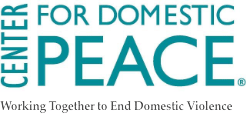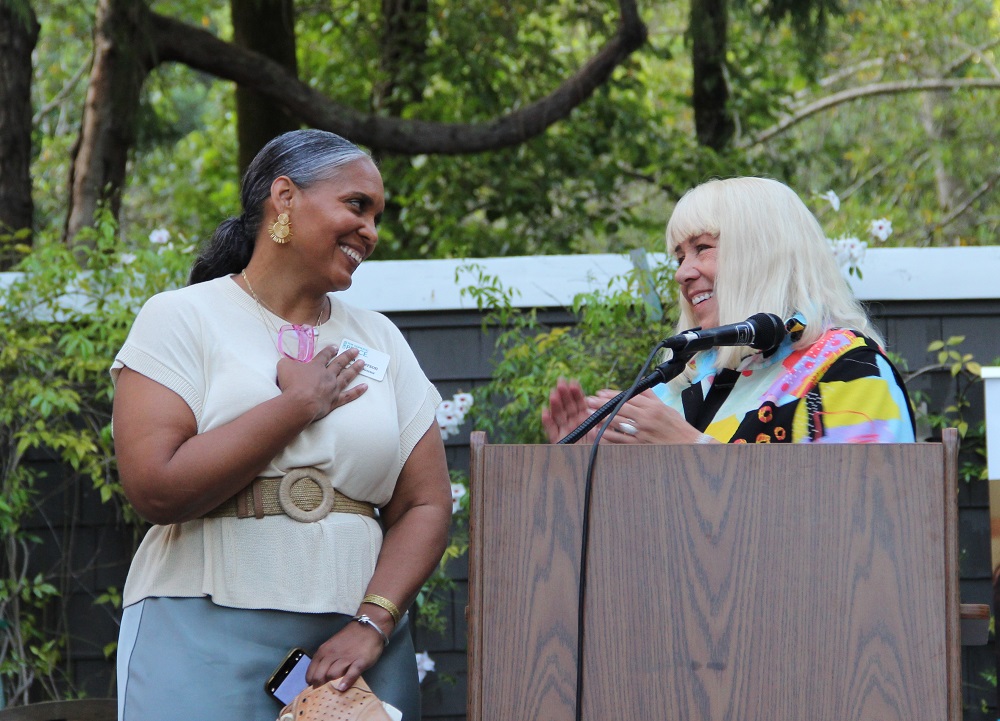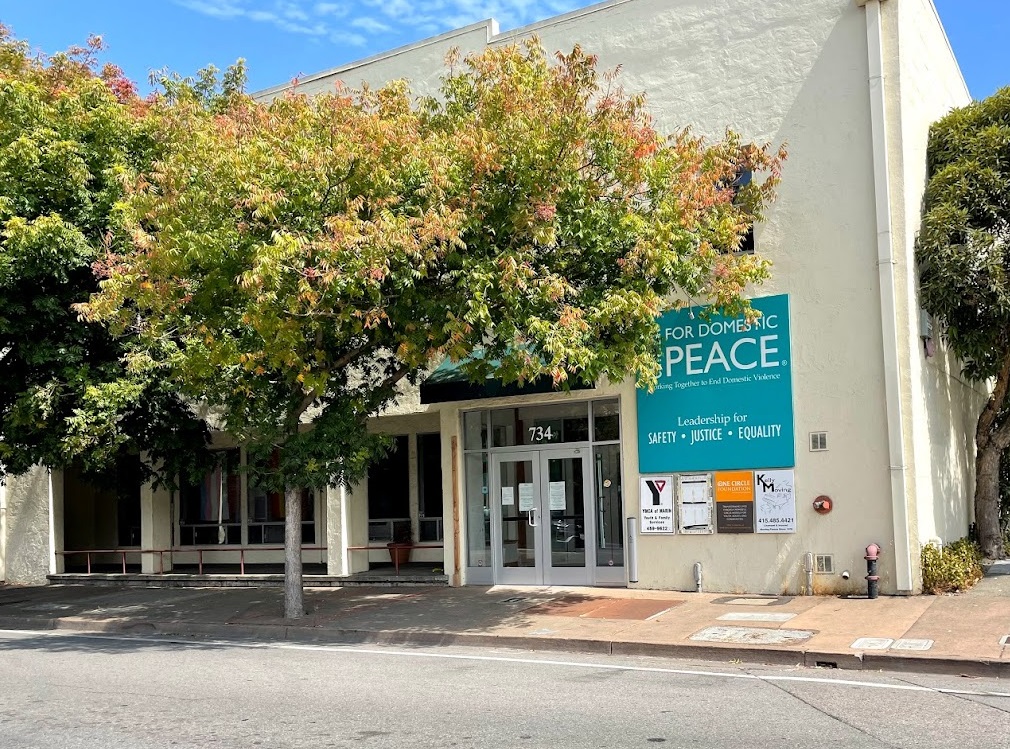In This Together!

“Thursday’s group helps a lot — it’s a place where you feel safe and you can talk about all these things, and they’re not judging.”
As noted last year in our 2021 edition of PeaceWatch, C4DP received a multi-year national demonstration grant from the Administration for Children and Families to evaluate the success of In This Together (ITT), a cutting-edge, group therapy model for parents and children. In collaboration with Dominican University’s (DU) Global Public Health Department, DU and C4DP are researching and developing evaluation protocols and producing a white paper to be published in an academic journal on ITT’s success and outcomes.
The work of ITT is so very important, as domestic violence can destroy the bond between children and their non-abusing parents. This program, launched in 2015, has helped hundreds of families heal together and improve their relationships. Until now, this work has not been clinically studied. This past May, the preliminary results were reported by the DU evaluators, Liliana Molina Cervantez and Nancy Bethsamet Hernandez, at a national epidemiology conference as part of their senior projects. The objective of their project was to examine the impact of the ITT program on a non-abusing parent’s relationship with their child/children, their emotional regulation abilities, and their ability to diminish the power of the abuser in order to be the parent they want to be.
The project covered two cohorts of ITT (10 weeks of online group therapy sessions in both English and Spanish), with 14 parents and 8 children participating. After an initial intake session, the parents and children were interviewed after each session to collect qualitative data, such as what they are learning and how they are integrating this work into their daily life.
Outcomes:
After a 10-week ITT cohort, the non-abusing parent (all women in this study) reported an improvement in their emotional awareness and problem-solving skills, with an improved ability to regulate their own emotions. They reported being more in touch with their own feelings and not likely to hide how they are feeling in front of their children. They felt less guilt and worry about their past parenting behavior or relationships and the impact it has had on their family. Lastly, almost all reported a renewed sense of motivation to be active and engaged parents, and all saw vast improvements in a more supportive family environment.
The children were also asked a set of questions regarding their relationship with their mother, and they reported their regard for her improved overall. Many times children feel they are responsible for taking care of their parents; the results showed after ITT, they understood they were not responsible for her feelings, and had a higher sense of relief. Their overall engagement with the non-abusing parent and family interactions increased, and they reported enjoying more time with their parent. Every child reported a more positive relationship with their survivor parent.
Parents’ Voice, Before and After
“The violence affected me a lot. I was mostly just focused on my abuser rather
than actually spending time with my son and paying attention to him.”
“It affected her because she was only 8 years old and wanted her dad so she would
get angry and sad.”
“Before last year, we exploded and yelled at each other, and he would throw things
and slam the door. Now we’re ready to relax and try to not explode. We’ll talk
later.”
“We focus on the situation that’s going on. We both take deep breaths, or my son
knows when. He tells me, ‘Mommy, I need to take a deep breath, and I’m going to
count from five and down’.”
Children’s Voice, Before and After
“I draw his face on a piece of paper, and I punch it every night. I am a very physical
person. I have anger issues, and I’m also depressed.”
“I’ve just stopped talking to people, and that’s it. I’ve gotten more serious.”
“I have learned how to control my emotions and talk with my mom about my feelings.”
“I feel more comfortable talking about my feelings, and I have learned what works
best for me and my family.”
With this current grant underway, there is anticipated renewed funding to increase the pool of participants to 100. If you are interested in participating, please contact our English/ Spanish-speaking Case Manager: 415-526-2553.
If you would like to see the slides in their entirety or a video of the presentation, please visit: www.centerfordomesticpeace.org/itt_slides





